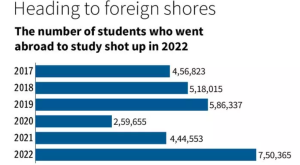8 Education Loan Options for Non-Traditional Students – Imagine juggling work, family, and studies while trying to fund your education. It’s a real-life struggle, and securing the right loan can feel like navigating a maze. This guide unlocks the secret passages, revealing eight distinct loan options tailored for non-traditional learners. From the nitty-gritty of eligibility criteria to the potential pitfalls of repayment, we’ll dissect every angle.
This journey delves into the unique financial landscape of non-traditional students. We’ll explore the different types of students who fit this mold, examining their specific needs and the challenges they face in securing educational funding. It’s not just about finding a loan; it’s about finding the right fit for your individual circumstances.
Introduction to Non-Traditional Student Loans
Non-traditional students are individuals pursuing higher education who deviate from the typical student profile. This often includes working adults, parents, and individuals returning to education after a significant gap. They bring unique life experiences and responsibilities, often requiring a tailored approach to financial aid.These students frequently juggle work, family obligations, and studies, leading to specific financial needs that differ from traditional students.
Understanding these unique needs is crucial for developing effective loan programs and support systems. The challenges faced in securing loans often stem from a combination of factors, including credit history, income fluctuations, and demonstrating financial responsibility outside the typical student framework.
Defining Non-Traditional Students
Non-traditional students encompass a diverse group, including individuals who may not fit the stereotypical image of a college student. This includes those who: are working full-time while pursuing their degrees; have dependents like children or elderly parents; have prior work experience and established financial obligations; are returning to education after a significant career break; or are pursuing education in fields other than the traditional bachelor’s degree.
Their motivations for pursuing education might also differ, from upskilling for career advancement to personal enrichment.
Financial Needs of Non-Traditional Students
Non-traditional students often face unique financial pressures. For example, working students might require loans to cover tuition, living expenses, and childcare. Parents with dependent children may have higher living expenses and need loans to accommodate those costs. Returning students might have established debts that impact their creditworthiness. These factors often influence the loan options available to them and the terms of those options.
Challenges in Securing Loans for Non-Traditional Students
Non-traditional students frequently encounter hurdles in securing loans. Their diverse financial situations, which may include existing debts, irregular income streams, or a lack of established credit history, can make them less attractive to traditional lenders. Demonstrating financial responsibility within the context of their unique circumstances can also present a challenge.
Loan Options Tailored to Non-Traditional Student Needs, 8 Education Loan Options for Non-Traditional Students
| Student Type | Financial Need | Loan Options |
|---|---|---|
| Working student with dependents | Tuition, living expenses, childcare | Federal student loans, private student loans with flexible repayment options, scholarships focused on working students. |
| Returning student with existing debt | Tuition, living expenses, repaying existing debts | Federal student loans, private loans with favorable credit terms, income-driven repayment plans, consolidation options. |
| Parent with dependent children | Tuition, living expenses, supporting family needs | Federal student loans, private loans with co-signer options, parent PLUS loans. |
| Student pursuing non-traditional degrees | Tuition, living expenses, specialized resources | Federal student loans, private loans, grants and scholarships for specific programs. |
Exploring 8 Education Loan Options
Non-traditional students often face unique financial challenges when pursuing higher education. Understanding the various loan options available is crucial for navigating these challenges effectively. This section details eight distinct education loan options, outlining their eligibility requirements, interest rates, repayment terms, and associated advantages and disadvantages.Navigating the complexities of student loans can feel overwhelming. By comparing different options, non-traditional students can make informed decisions aligned with their individual financial situations and educational goals.



